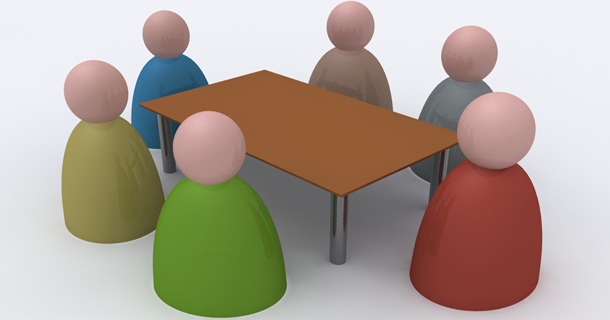
In the competitive world most of the employers try to filter right/suitable candidates from the pool of applicants the easiest way of doing this for them is Group discussions. Most of the candidates get panic on hearing this part of the interview procedure to overcome such fear and get through successfully they need to know certain things which boost up their confidence levels to make able to prove themselves as perfect fit to the job applied.
Few basical things to be known about Group Discussions are:
Group discussions can be of a case based or topic based.
1. Factual Topics: Factual topics are about practical things Eg: Legal System in India, Reservation system in Education – your opinions etc.
2. Controversial Topics: Controversial topics are the ones that are argumentative in nature Eg: Is India safe for Indians, Is Love precious or poisonous.
3. Abstract Topics: Abstract topics are about intangible things; Eg: Point, Pink Pyjamas flying high on the red fort, Sky is Red etc.
Initially the candidate should be able to judge the topic whether it is factual, controversial, abstract. As soon as the topic is given don’t get panic & more importantly don’t let the panic show on your face; after all, a good manager never lets stress get to him and must stay calm and cool under all circumstances. There is often a misconception among students that if one starts the GD and is the first one to speak s/he is sure to get in. The strategy of speaking first is a ‘high risk high return’ strategy. So if you are speaking first, remember that you are bringing a lot of focus upon yourself, thus making it critical that what you say makes complete sense and is relevant to the topic at hand. Be as natural as possible. Do not try and be someone you are not. Be yourself. Take time to organize your thoughts. Think of what you are going to say Always be polite: Try to avoid using extreme phrases like: `I strongly object’ or `I disagree’. Instead try phrases like: `I would like to share my views on…’ or `one difference between your points and mine…’ or “I beg to differ with you”
If you happen to have a difficulty understanding a GD topic which is factual by nature, then there’s little you can do about it once you are inside the GD. The best thing to do at this point is to listen carefully. Let other people get into the discussion and don’t spend this time wondering what you should do or how others are performing. Use this time to understand and absorb the meaning of the topic.
If you have been able to grasp the meaning by doing this and it turns out that you do know something about the topic being discussed, then jump at an appropriate juncture and display your knowledge. Always remember that when a panel gives a factual topic, they are looking to judge you on your general knowledge. You have to speak in a confident manner in good language for you to even have a chance at making it through in the Group Discussions.
When the topic is abstract and you don’t know what to make of it, and then remember that everyone is in the same boat. An abstract topic is that it is totally open to interpretation and there is no real right or wrong argument. There are two ways of dealing with a topic like this.
One way is to turn it into a question by adding words like ‘who is’ ‘what is’ ‘why is’ ‘when is’ etc. before the topic. This is applicable to abstract topics such as “Point”. When the abstract topic is elaborate like ‘Pink Pyjamas Flying on top of the Red Fort’, then try breaking it up. So look at it as Pink Pyjamas + Flying on top + Red Fort. Then try to associate each of the parts to real life. For e.g. ‘Pink Pyjamas’ is likely to denote ‘women’, ‘flying on top’ means ‘making a mark’ and ‘Red Fort’ probably means ‘something of significance’. So one interpretation of this topic would be ‘women making a mark in significant aspects in life’.
Apart from the above points, the panel will also judge team members for their alertness and presence of mind, problem-solving abilities, ability to work as a team without alienating certain members, and creativity
By trying to practice in this manner, you can discuss almost any Group Discussion topic in the world.
